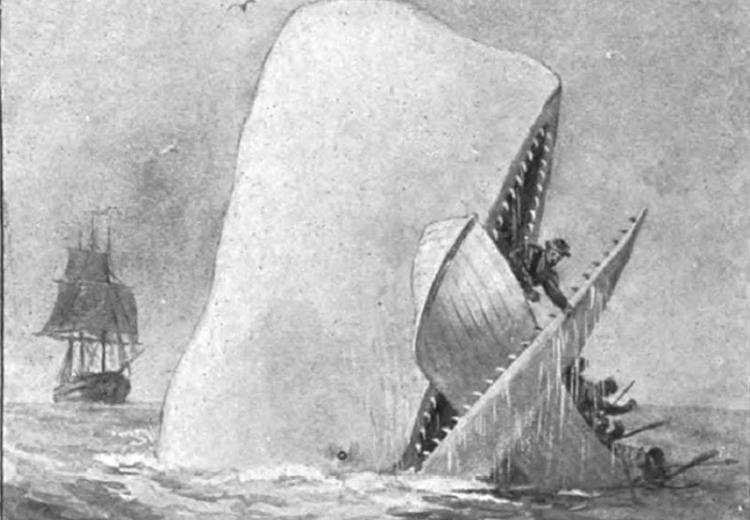Lesson 2: Dramatic Perspective in Moby Dick

Illustration from an early edition of Moby Dick, 1892.
The two main characters of the novel, Ishmael and Ahab, represent different facets of Melville’s belief in the importance of freedom in American society. Ishmael sets out for his sea adventure by joining a band of men in an attempt to ease his land-bound troubles. Ahab is driven to take on a quest for revenge against the whale that stole his leg, which he symbolically replaces with an ivory prosthesis. Ishmael is the democratic everyman foil to Ahab’s elite and dictatorial captaincy. The story of Moby-Dick—of Ahab’s hunt for the elusive whale—remains primarily Ishmael’s story because of his first-person narration.
Students examine two chapters of Moby-Dick to investigate points at which Melville shifts the narrative voice. The major change in perspective comes as Ahab enters the scene, quite literally, in chapters that Melville has written in the form of a drama. As he does this, Melville divorces Ishmael’s perspective from a short segment of the novel, giving his readers unencumbered access to the mind of his narrator’s foil, Captain Ahab.
This lesson offers a close reading of Melville’s introduction of Captain Ahab in “Sunset,” chapter 37, which highlights the use of dramatic perspective. Students explore the impact of this shift from a first-person account to a dramatic monologue and examine how this new perspective enhances the telling of the story as a whole.
Lesson 2 is one part of a three lesson unit on Moby-Dick. The lesson builds on the first lesson of the unit. Teachers may link to the full unit with Guiding Questions, College and Career Readiness standards and Background. Lesson 2 aligns with CCSS.ELA-Literacy.CCRA.R.3.
Learning Objectives
Analyze how Melville shifts from Ishmael’s first-person narrative begun in “Loomings,” chapter 1, to Ahab’s dramatic monologue in “Sunset,” chapter 37
Examine the how the character of Captain Ahab acts as a foil to the narrator Ishmael
